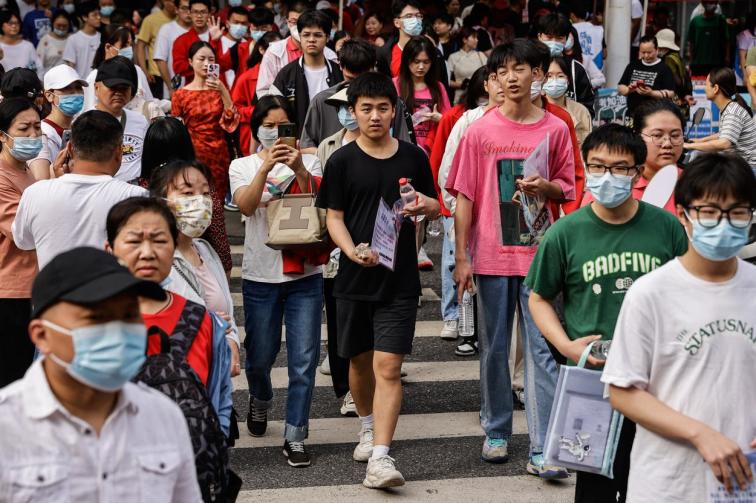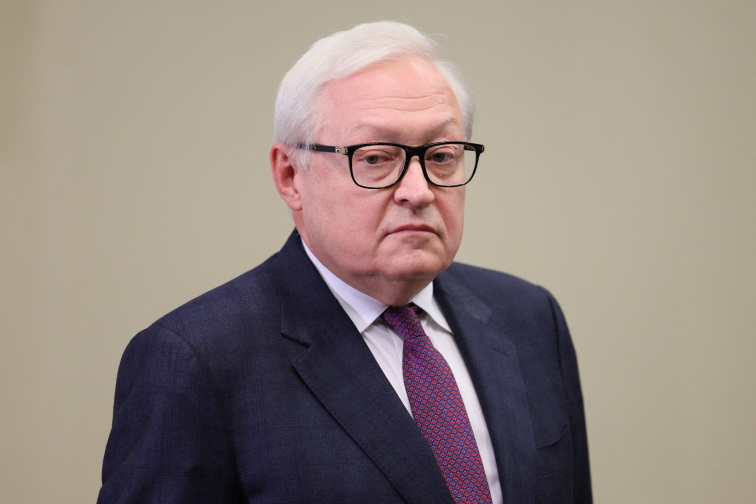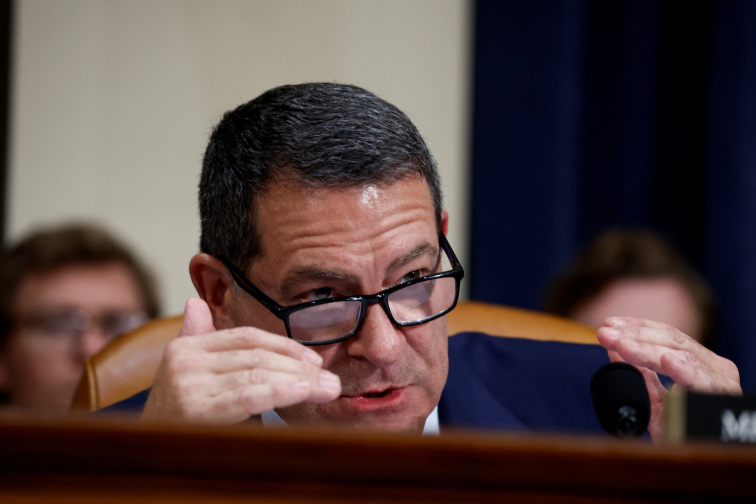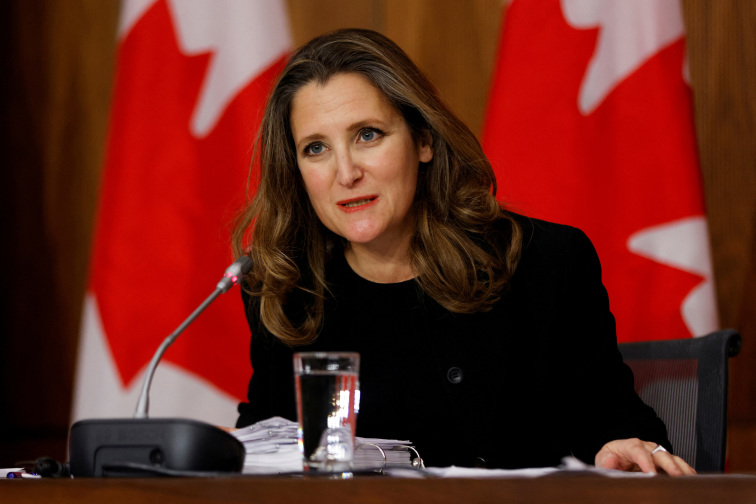Qincheng Prison (video screenshot)
People News - On December 17, Li Jianping, former Secretary of the Party Working Committee of Hohhot Economic and Technological Development Zone, was executed, marking him as “the biggest corrupt official in Inner Mongolia’s history.” He was accused of amassing illicit wealth totaling 3 billion RMB.
In September 7, 2022, Li was sentenced to death for corruption, bribery, embezzlement of public funds, and sheltering organized crime. After appealing unsuccessfully, his sentence was upheld by the Higher People's Court and reviewed by the Supreme People’s Court. The Intermediate Court of Xing’an League in Inner Mongolia subsequently carried out his execution.
On the same day, former Chongqing Vice Mayor Xiong Xue was sentenced to death with a two-year reprieve. After a retrospective investigation spanning 24 years, he was accused of amassing illicit gains totaling 148 million RMB. When he was expelled from the Chinese Communist Party (CCP) in November 13, 2023, official reports stated that he had “failed to align with the Party Central Committee on major political issues,” formed cliques, and engaged in fraudulent reporting.
The cases of Li and Xiong reveal stark contrasts. Li, a lower-ranking official, was labeled a “small official with massive corruption,” primarily for economic crimes. Xiong, a higher-ranking official, faced accusations of political disloyalty alongside financial misconduct. Although Xiong has a chance of life through a commuted sentence, his case is deemed particularly severe and “unfair,” as others who have embezzled far larger amounts received far lighter punishments. For instance: Fan Jixiang, former deputy secretary and chairman of China Power Construction Group, is rumored to have been involved in a 970-billion-RMB corruption case. Nearly a year after his arrest, no verdict has been announced. Wang Yilin, former chairman of China National Offshore Oil Corporation, was implicated in a 900-billion-RMB case. After a year of investigation, he has merely been expelled from the Party. Yang Xiuzhu, former deputy director of the Zhejiang Provincial Department of Construction, embezzled 2.53 billion RMB but was sentenced to only 8 years in prison. Liu Linxiang, former director of the Budget Department at the All-China Federation of Supply and Marketing Cooperatives, embezzled nearly 4 billion RMB but was sentenced to 10 years. Gao Shan, former director of the Harbin He Song Street Branch of the Bank of China, embezzled 1 billion RMB yet received only a 15-year sentence. Zhang Zhinan, former deputy governor of Fujian Province, was sentenced to 14 years for accepting bribes and abusing power, involving 182 million RMB. Fan Yifei, former deputy governor of the People’s Bank of China, embezzled close to 800 billion RMB but received a commuted sentence of life imprisonment after two years. Some cases have even gone unresolved: Yang Sitao, former party secretary and chairman of Hainan Agricultural Reclamation Investment Holding Group, and former director of Hainan Agricultural Reclamation General Bureau, allegedly accepted bribes of 338 million RMB. However, no sentencing has been announced. Against this backdrop, Xiong Xue, a vice-ministerial-level official who “only” embezzled 148 million RMB, faces a death sentence with reprieve, likely spending the rest of his life in prison or dying behind bars. Unsurprisingly, he might feel that his “Party father” has treated its “children” unfairly.
However, Xiong Xue might not realize that lenient sentences for serious crimes are often given to those who implicate individuals the CCP wants targeted. But even "rendering meritorious service" doesn’t necessarily guarantee survival—Li Jianping is a prime example.
For Li, it must have felt painfully unfair how the Party arbitrarily decides punishments for corrupt officials. Consider Zhang Zhongsheng, former Vice Mayor of Lüliang City, Shanxi Province. He was sentenced to death by the Intermediate People's Court of Linfen City for accepting bribes totaling over 1.04 billion RMB and having unexplained assets worth another 130 million RMB. Yet three and a half years later, his sentence was commuted to death with reprieve because of “significant meritorious contributions,” namely providing evidence against individuals the CCP wanted exposed.
There’s an internal saying: the so-called 10-billion-RMB “life-or-death line” for corruption cases is merely a pretext. In reality, it depends on whether the CCP decides to let you live or die.
Li Jianping clung to the lifeline of “reporting and cooperating,” revealing everything he could about others, yet he still met a swift execution. This illustrates that survival under the CCP depends not on the law but on the whims of higher-ups.
An article by China News Weekly, citing insiders, reported that Li Jianping was well-connected, often hosting provincial and ministerial-level officials for mahjong games at his home. He not only accepted bribes worth billions from individuals but also used billions of his own to bribe senior officials. He built a vast network of connections involving finance, real estate management, and even discipline inspection officials. After being arrested, he implicated numerous officials at or above the bureau level, making the interconnected corruption cases extremely complex.
The harsh reality becomes apparent only when one is sentenced to death or a reprieve: so-called leniency for confessions or reduced sentences for accusations depend on whether the accused implicates individuals the CCP wants targeted. On the other hand, if they implicate officials whom investigators want to protect, their execution may be expedited.
Du Wen, a former deputy director of the Legal Advisory Office of Inner Mongolia's Legal Affairs Bureau, often reveals the CCP’s internal political intrigues. He once explained that recklessly implicating one’s patrons is tantamount to self-destruction, like setting fire to your ancestral grave or putting fire cups on your own body. Many high-ranking officials install informants within discipline inspection teams to monitor developments and prevent their networks from unraveling.
Du provided an example involving Bai Zhiming, former Deputy Secretary-General of Inner Mongolia’s government, who also served as Director of the 610 Office and Deputy Secretary and Discipline Inspection Secretary of Xilin Gol League. During interrogation, Bai admitted to giving his superior, Batel, a gift of 700,000 RMB. This confession backfired spectacularly, as the discipline inspection team reportedly retaliated violently, beating him to the point of intracranial bleeding. He fell into a coma, underwent emergency cranial surgery, and was pronounced nearly brain-dead. Miraculously, he survived after 20 days in intensive care but was left with severe disabilities, struggling to walk for nearly four years. Bai was eventually sentenced to life imprisonment after being accused of numerous crimes. After serving 15 years—typically enough for sentence reduction in such cases—he remains in prison, denied any reduction or commutation of his sentence. The prison authorities have reportedly fabricated various excuses to block his release.
Even when the prison hospital’s medical parole committee unanimously recommended Bai for medical parole due to his deteriorating health, those doctors were later arrested during an anti-corruption campaign and became Bai’s fellow prisoners. This strategy, known as silencing, ensures that such individuals die in custody. Hence, among corrupt officials, there’s a grim saying: “Confessing will get you killed, so it’s better to stay silent.”
As for Li Jianping, one can only wonder if he unknowingly implicated someone he shouldn’t have.











News magazine bootstrap themes!
I like this themes, fast loading and look profesional
Thank you Carlos!
You're welcome!
Please support me with give positive rating!
Yes Sure!